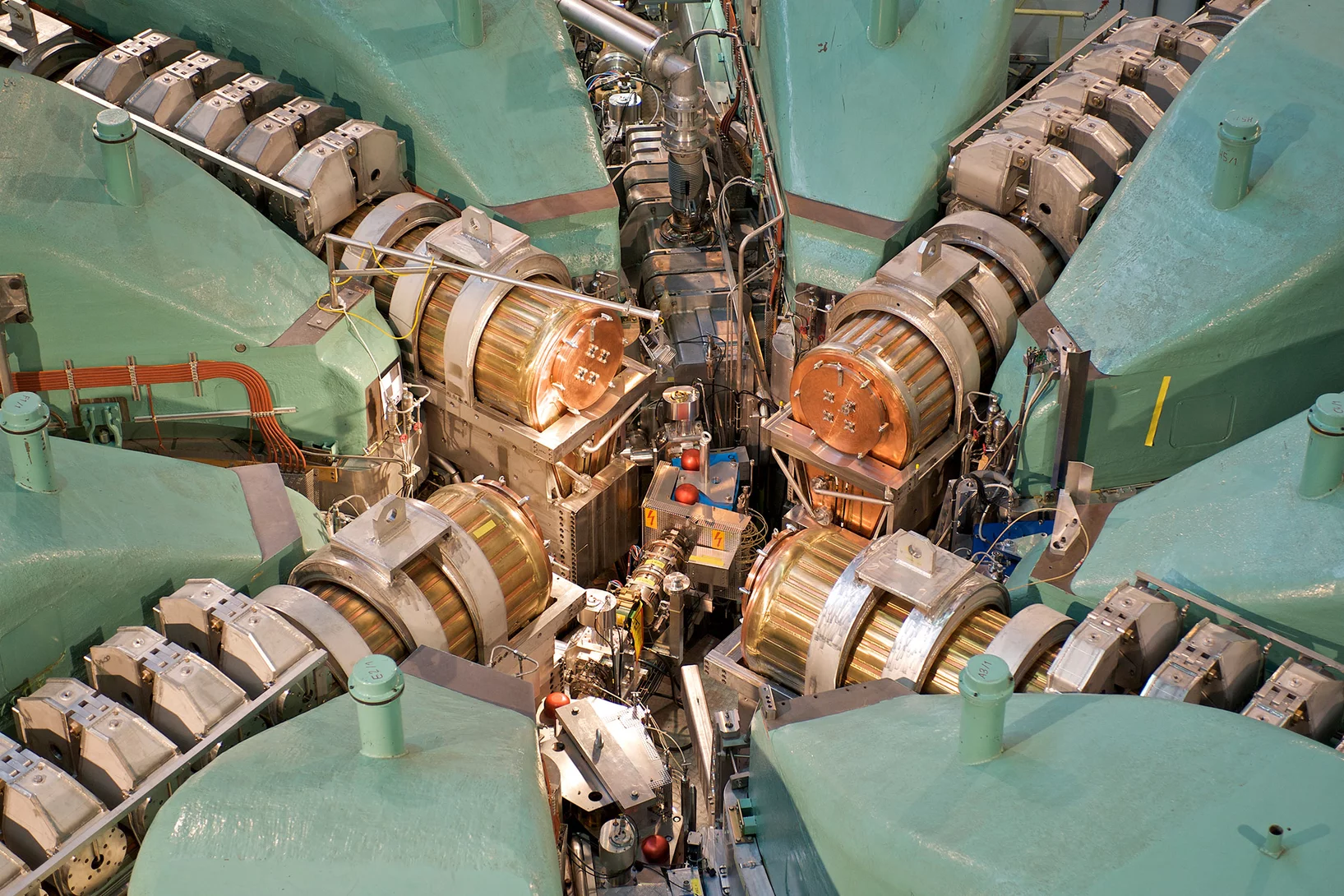Neutron scattering techniques are highly versatile and powerful tools for studying the structure and dynamics of condensed matter. A wide scope of problems, ranging from fundamental to solid state physics and chemistry, and from materials science to biology, medicine and environmental science, can be investigated with neutrons. In addition to scattering, non-diffractive methods like imaging techniques allows for non-destructive inspection of materials and components, providing information on their internal structure, composition, and integrity with growing relevance also for industrial applications.
The spallation neutron source SINQ is a continuous source - the first and only one of its kind in the world - with a flux of about 1014 n/cm2/s. Beside thermal neutrons, a cold moderator of liquid deuterium (cold source) slows neutrons down and shifts their spectrum to lower energies. These neutrons have proved to be particularly valuable in materials research and in the investigation of biological substances.
SINQ operates as a user facility, meaning that scientists and research groups from around the world can apply for beamtime to conduct experiments using its various neutron instruments.
Latest News
The call for proposals I-26 is closed now. The next proposal submission deadline is planned for 15 May 2026. Please find more detailed information following the link below.
Latest Scientific Highlights and News
Wie Wasserstoff Titanimplantate beeinflusst
Forschende untersuchen an der Schweizer Spallations-Neutronenquelle SINQ, wie sich medizinische Implantate im Körper verändern.
Room-Temperature Magnetic Skyrmions and Intrinsic Anomalous Hall Effect in a Nodal-Line Kagomé Ferromagnet MnRhP
Topological magnetic semimetals with kagomé lattices have attracted significant attention due to their nontrivial electronic band structures and pronounced electromagnetic responses. The search for kagomé-lattice topological semimetals exhibiting magnetic ordering above room temperature is essential ...
Low-frequency electrochemical pulsing to manage flooding and salt precipitation in zero-gap CO2-to-ethylene electrolyzers
The electrochemical conversion of CO2 to ethylene offers a promising approach to expand manufacturing of commodity chemicals and fuels. Specifically, ethylene is a critical precursor for polyethylene a $240B industry. Expanding productivity ...
User Contacts
Office hours
Monday through Friday from 8:00-11:30 and 12:30-17:00
otherwise please contact us per email
User Office
Provides all information about user access to the PSI Large Research Facilities
DUO Login
Direct link to the Digital User Office




